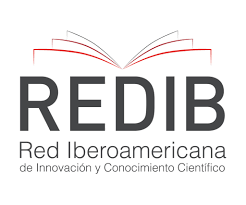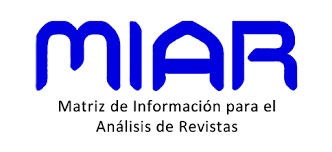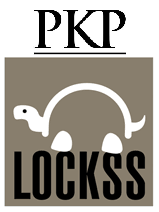From “A” to “Z” (Technocracy, unity of knowledge and person)
DOI:
https://doi.org/10.51743/cpe.332Keywords:
Encyclopedia, knowledge, love, person, poíesis, technocracyAbstract
The encyclopedic alphabetic order fractures knowledge and helps strengthen the empire of the single letter, the desiring and autonomous individual who reduces everything to technique, dominion. Such fragmentation of knowledge reveals an anthropological rupture. We need to move away from the techno-scientific model
towards poíesis, but, above all, we need to focus on what it is to be human. This article aims to reconsider what being a person means. This is hipóstasis-prósopon which grows in interpersonal relationships (you-me), that is, in a relationship of reception and care (shelter-protection) which is a consequence of love (agape). This elicits a life of communion that creates a poietic poíesis (poietic embrace) and concentrates on the real, giving rise to a new (agapic) type of knowledge, to a new relationship with the natural world, understanding it as a vital space (domus) and to another way of understanding social relationships and their ontological basis (sizigía).
Downloads
References
Bacon, F. T. (2021). The Advancement of Learning. https://www.gutenberg.org/files/5500/5500-h/5500-h.htm.
Bergsma, J. (2019). La Biblia paso a paso. RIALP.
Chalier, C. (2007). Tratado de las lágrimas. Sígueme.
Chesterton, G. K. (1984). El hombre que fue Jueves. Seix Barral.
Chrétien, J.-L. (1997). La llamada y la respuesta. Caparrós.
Comte, A. (1988). Discurso sobre el espíritu positivo. Alianza.
Condorcet, D. (1980). Bosquejo de un cuadro histórico de los progresos del Espíritu humano. Editora Nacional.
D’Alembert, J. R. (1751). Discours preliminaire des editeurs. En Diderot, D. et D’Alembert, J. R. (Eds.). Encyclopédie ou Dictionnaire raisonné des sciences, des arts et des métiers. Tome premier, (i-xlv). Brisasson, David, Le Breton et Durand.
D’Alembert, J. R. (1755). Elements des sciences. En Diderot, D. et D’Alembert, J. R. (Eds.) Encyclopédie ou Dictionnaire raisonné des sciences, des arts et des métiers. Tome cinquième, (491-497). Brisasson, David, Le Breton et Durand.
Diderot, D. (1751). Art. En Diderot, D. et D’Alembert, J. R. (Eds.) Encyclopédie ou Dictionnaire raisonné des sciences, des arts et des métiers. Tome premier, (713-719). Brisasson, David, Le Breton et Durand.
Diderot, D. (1751). Proposées par suscription (Prospectus). En Diderot, D. et D’Alembert, J. R. (Eds.) Encyclopédie ou Dictionnaire raisonné des sciences, des arts et des métiers. Brisasson, David, Le Breton et Durand.
Diderot, D. (1755). Encyclopédie. En Diderot, D. et D’Alembert, J. R. (Eds.) Encyclopédie ou Dictionnaire raisonné des sciences, des arts et des métiers. Tome cinquième, (635-648 a). Brisasson, David, Le Breton et Durand.
Diderot, D. (1765). Avertissement. En Diderot, D. et D’Alembert, J. R. (Eds.) Encyclopédie ou Dictionnaire raisonné des sciences, des arts et des métiers. Tome huitieme, (i-ii). Brisasson, David, Le Breton et Durand.
Diderot, D. et D’Alembert, J. R. (Eds.) (1751). Encyclopédie ou Dictionnaire raisonné des sciences, des arts et des métiers. Tome premier. Brisasson, David, Le Breton et Durand. DOI: https://doi.org/10.5962/bhl.title.82225
De Mattos, F. (2015). Árvore do saber. En Diderot, D. e D’Alembert, J. R. Enciclopédia, ou Dicionário razoado das ciencias, das artes e dos ofícios. Volume I. Discurso preliminar e outros textos, (27-41). Editora UNESP.
Esquilo. (1993). Los persas. Los siete contra Tebas. Las suplicantes. Prometeo encadenado. Gredos.
Esquirol, J. M. (2021). Humano, más humano. Acantilado.
Evdokimov, P. (1966). Sacramento del amor. Ariel.
Falque, E. (2013). Pasar Getsemaní. Sígueme.
Fernández Beites, P. (2008). Fenomenología y esencia procesual humana. Investigaciones Fenomenológicas, (6), 379–394. https://doi.org/10.5944/rif.6.2008.5518. DOI: https://doi.org/10.5944/rif.6.2008.5518
García-Baró, M. (2004). De Homero a Sócrates. Sígueme.
García Baró, M. (2019). La metafísica y la prudencia. Real Academia de Ciencias Morales y Políticas.
Hazard, P. (1985). El pensamiento europeo en el siglo XVIII. Alianza Editorial.
Hildebrand, D. V. (2016). Las formas espirituales de la afectividad. Encuentro.
Hume, D. (1984). Tratado de la naturaleza humana. Orbis.
Kant, M. (1983). Fundamentación de la metafísica de las costumbres. Espasa-Calpe.
Kant, M. (1984). Crítica de la razón práctica. Espasa-Calpe.
Kant, M. (2013). ¿Qué es la Ilustración? Alianza.
Locke, J. (2006). Segundo tratado sobre el gobierno civil. Tecnos.
Husserl, E. (2008). La crisis de las ciencias europeas y la fenomenología trascendental. Prometeo.
Marion, J. L. (2005). El fenómeno erótico. Ediciones literales.
Marmontel, J. F. (1754). Critique. En Diderot, D. et D’Alembert, J. R. (Eds.) Encyclopédie ou Dictionnaire raisonné des sciences, des arts et des métiers. Tome quatrieme, (490-497) Brisasson, David, Le Breton et Durand.
Negro, D. (2009). El mito del hombre nuevo. Encuentro.
Nisbet, R. (1998). Historia de la idea de progreso. Gedisa.
Platón. ( 1992). Diálogos, III. Fedón, Banquete, Fedro. Gredos.
Recasens, L. (1957). Algunas notas sobre la idea del progreso en la obra de Augusto Comte. Revista Mexicana de Sociología, 19, (3), 663-683. http://dx.doi.org/10.22201/iis.01882503p.1957.3.59057. DOI: https://doi.org/10.2307/3538427
S. Agustín (1956). Obras de San Agustín, V. Tratado sobre la Santísima Trinidad. BAC.
S. Agustín. (1979). Obras de San Agustín, II. Las Confesiones. BAC.
Scheler, M. (2001). Ética. Caparrós.
Soloviev, V. (2009). El significado del amor. Monte Carmelo.
Soloviov, V. (2006). Teohumanidad. Sígueme.
Spaemann, R. (2000). Personas. EUNSA.
Steiner, G. (1989). Presencias reales. Destino.
Sto. Tomás de Aquino. (1988). Suma de Teología, I. Parte I. BAC.
Turgot, A. R. J. (25 de junio de 2016). Discours sur les progres successifs de l’Esprit humain. Institutt Coppet. https://www.institutcoppet.org/turgot-discours-sur-les-progres-successifs-de-lesprit-humain-1750/.
Von Rad, G. (2000). Teología del Antiguo Testamento, I. Sígueme.
Zizioulas, I. D. (2003). El ser eclesial. Sígueme.
Zizioulas, I. D. (2009). Comunión y alteridad. Sígueme.
Zubiri, X. (2007). El hombre y Dios. Alianza Editorial-Fundación Xavier Zubiri.
Downloads
Published
How to Cite
Issue
Section
License
The author reserves the rights (copyright) of the published works, and the journal encourages and allows their reuse, from the preprint. The works are published in the electronic edition of the journal under a license "Creative Commons Attribution / Attribution-NonCommercial 4.0 International Public License - CC BY-NC 4.0", and can be copied, used, disseminated, transmitted and publicly exhibited.
The author / s partially transfer the property rights (copyright) of this work for the printed and online editions, provided that:
- The authorship and original source of its publication (magazine, publisher and URL of the work) is cited.
- Are not used for commercial purposes.
- The existence and specifications of this user license are mentioned.
It also declares to have respected the ethical principles of research and to be free from any conflict of interest.
"C.P.E." encourages the authors and the scientific community to the maximum promotion and dissemination of the works in their final version through:
1) Your list of contacts (emails) and social networks (Facebook, Twitter, LinkedIn ...).
2) Institutional repository of your University and public repositories (Mendeley, Cosis ...).
3) Scientific social networks (ResearchGate, Academia.edu, Kudos ...).
4) Personal or institutional website, blog, etc.
5) Google Scholar, ORCID, ResearchID, ScopusID, Dimensions, PlumX ...
6) Printed copies purchased directly and sent to specialists for reading and subsequent citation if appropriate.




















1.png)
1.png)

1.png)





.png)
.png)

.png)
1.png)
1.png)
